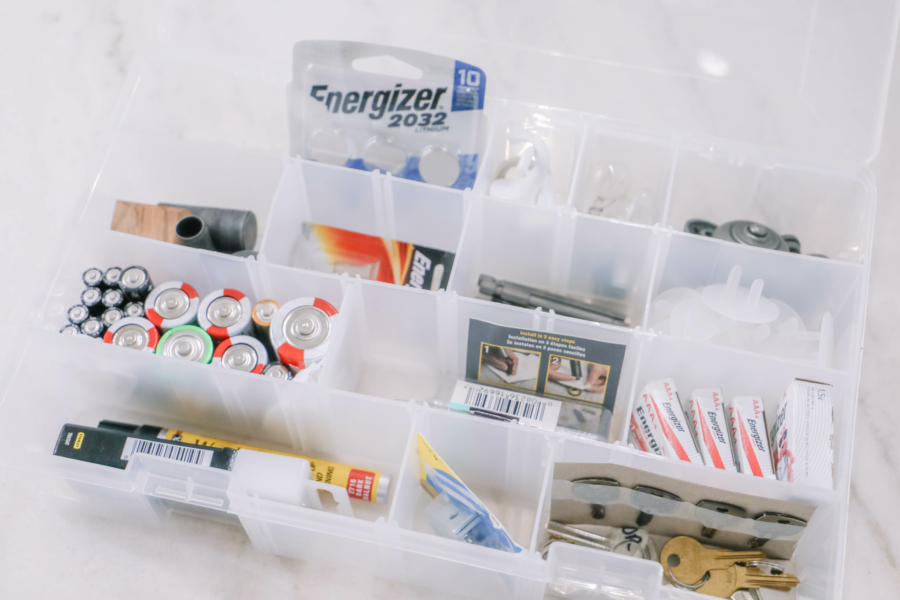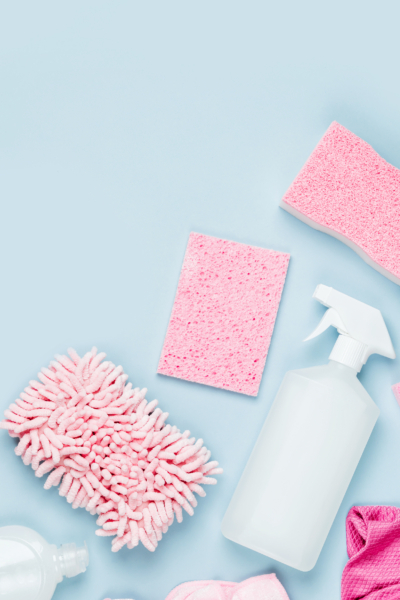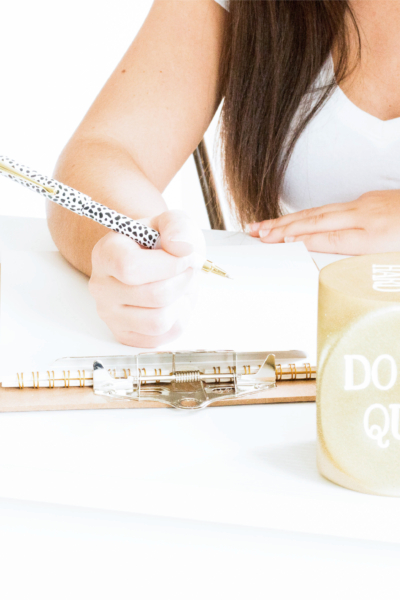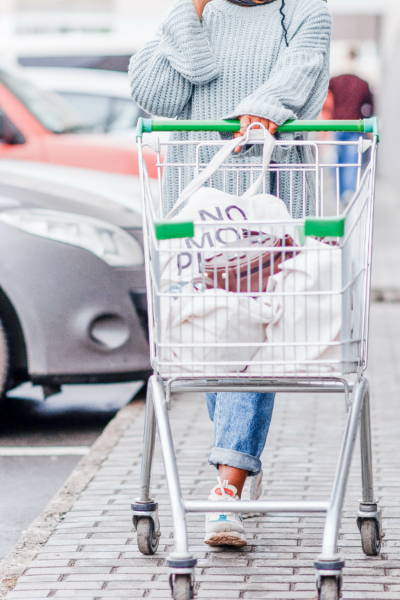So, you read my post about how organizing our homes saves us money, but you’re still a little sceptical. Okay, I get that. But, I guarantee you, after reading this, you won’t be!!! Something we all have in our homes started this fire (Kids and Character).
Immediately after seeing this video above, of course, I looked at my highly organized toolbox of batteries, and saw that my batteries, too, could be easily rattled and start a fire! So, now they are covered with tape and the tips are away from each other to avoid burning.
I’m so glad I came across this video! Being organized can sure be one of the best money saving tips. If your house burns down and everything in it, that’s a whole lot of money lost because a few simple steps weren’t taken! Here’s how to prevent it…
Something We All Have in Our Homes Started This Fire (from Kids and Character)
Get Your Batteries Organized!
Organizing your batteries…both those yet to be used and those that are waiting to be recycled, isn’t just an important way to help you save money. Safe battery organizer storage is also a way to help save lives. In the video, the narrator tells us how his lack of understanding led to the loss of his home. Thankfully, his family and pets escaped without harm.
The first step is to keep new batteries organized. If you remove them from their packaging, have them standing safely on end waiting to be used. Take a look at my toolbox (great ideas for battery storage) for an example of how you can safely store your unused batteries.
Your best bet, however, would be to keep batteries in their original packaging until it’s time to use them. This helps to keep track of which ones have yet to be used as well as the dates after which they will expire.
How to Safely Dispose of Dead Batteries
It’s also important to be careful with your dead batteries as you get ready to dispose of them. Throwing them in the trash is not only unsafe for the environment (it allows battery acid to get into groundwater, adds more to already overflowing landfills, etc.) but is also a fire hazard. If the ends of the batteries rub against those of another battery, enough heat could be conducted to ignite materials in your garbage can! Unknowingly, you may start a fire inside your home that, within seconds, will spread to the rest of your home.
Also, you want to be careful if you recycle your batteries. Whether you place dead batteries in a bin waiting to be recycled, or have the habit of tossing them into a drawer for the next time that you are going to the recycling center, your batteries can cause your home to catch fire if they are not properly stored. It’s important that you keep your batteries’ ends from touching one another so that they don’t have the possibility of creating enough heat to start nearby materials on fire.
Regardless of how you dispose of your batteries, one simple way to make sure that they don’t have the ability to conduct heat is to cover the ends of each battery with electrical tape after it has been used. The electrical tape wont’t prevent you from being able to recycle your batteries and will provide a barrier between batteries that may otherwise be able to rub against one another if your bin gets jiggled. Once you’ve covered the ends carefully and placed your batteries in a bin, your family will be safe from this potential safety hazard.
How do you Recycle Batteries?
As mentioned, recycling batteries doesn’t take much more effort than throwing them away and it saves them from releasing toxins and taking space in landfills. Not sure how to go about recycling them?
Try an online search in your area for companies that recycle batteries. You may be able to drop them off as you are running weekly errands. They are typically accepted as is. Most recycling companies accept all batteries…everything from car batteries to watch batteries. As previously discussed, covering the ends to keep them safe from conducting heat is imperative before you put them into your car to take them to be recycled. If you aren’t able to take them to a recycling center, look online for local organizations that collect them for recycling. Many schools, churches, or businesses collect them and take them safely to centers where they can be recycled. Your community may also provide battery recycling days during which you can take them over to be disposed of.
Looking to Lessen your Number of Batteries?
Do you find yourself trying to minimize the number of batteries that you need to be concerned about in your home? The narrator of the video talked about the danger of old 9 Volt batteries from smoke detectors. There are ways to prevent so many batteries from making their way into your home.
As companies have tried to become more energy-efficient, newer smoke and carbon monoxide detectors are being made with 10-year batteries. While they still need to be checked to be sure that they working efficiently, replacing your battery at the same time that you do your detectors (it is recommended that they also be replaced every 10 years) will cut down on the number of batteries that you use, as well as keep your detectors running efficiently. Looking for a great one to try? Here’s one on Amazon that has fantastic reviews and is very cost effective. Keep in mind, if you still have an old smoke detector, a safe rule of thumb is changing the batteries every year.
Using lithium batteries will also lengthen the time that you get out of each one and will lessen the number of batteries that you have floating around your home. When you make new purchases (of objects that require batteries) looking for those that use longer-life batteries will mean fewer batteries that you need to manage. This makes for both a more organized home and one that is safer from the fire hazards that I’ve mentioned.
Educating your Kids on Fire Safety
Fire safety is a topic that is difficult to talk about with children. There is a fine line between providing enough information to keep them safe and scaring them with too much information. As you teach them about how to keep themselves (and those around them) safe, focus on the basics.
First, talk about potential fire starters that they have access to. Discuss matches, lighters, stoves, etc. and that each one easily creates fire. Share with them that these important fire starters can be used for good, but that they are for adults only. Explain that, when they get older, you will teach them how to safely use these tools (and only with your help). Taking the approach of explaining them to be adult tools will prevent children from being scared and will get the message across that they are not to use them.
As you discuss fire safety, gently talking about what to do with batteries will help your little one to understand that it is important that they follow the rules after that favorite toy’s batteries have needed to be replaced. Explain that they must hand you the batteries as soon as they are finished with them (I never let my kids touch batteries). Talk about the hazard of battery acid getting on their hands, as well as that improper care could lead to a fire. If your kids are a bit older, show them how to go about getting electrical tape and placing it on the batteries’ ends before putting it in the dead battery bin to be recycled. Making this conversation part of your fire safety lesson will help them to understand the importance of disposing of batteries properly.
Once you have talked about various fire hazards around your home and how your child can help to keep your family safe, talk about what to do in the event that you do have a problem in your home. Discuss exit routes and practice them. Talk about staying low to the ground to avoid breathing in smoke and not stopping to take anything with them. Make sure to talk about a family meeting place once you are out of your home so that your child knows where to go once out of your home.
As you discuss fire safety, explain that the things that you’re talking about will likely never need to be used, but that, through talking about it, you’ll be ready in the event that there was an emergency. By returning to a positive and gentle tone with your child, as well as omitting unnecessary additional details, you’ll provide him or her with the information that is needed and instill the sense of importance without scaring them about potential hazards.
You can find out more on the Kids and Character website.
Organizing and storing batteries in your home isn’t just an important way to get your house in order (making for greater peace of mind). It’s also an important way to keep yourself and your family safe from the potential fire hazard created when batteries are stored together.
Next time you have a dead battery, simply cover its ends with electrical tape before safely disposing of it. This step will keep your family out of harm’s way.












